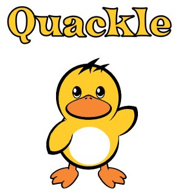
In 1956, a summer school took place at Darmouth College, organised by John McCarthy, the father of Lisp, Marvin Minski, and Claude Shannon, among others. It was called The Darmouth Summer Research Project on Artificial Intellingence. Nowadays that may seem as rather run of the mill, but back then was the first appearance in print of the term AI, coined by McCarthy. The school’s announcement starts with a paragraph tinted of the characteristic optimism of hard AI proponents of the time:
We propose that a 2 month, 10 man study of artificial intelligence be carried out during the summer of 1956 at Dartmouth College in Hanover, New Hampshire. The study is to proceed on the basis of the conjecture that every aspect of learning or any other feature of intelligence can in principle be so precisely described that a machine can be made to simulate it. An attempt will be made to find how to make machines use language, form abstractions and concepts, solve kinds of problems now reserved for humans, and improve themselves. We think that a significant advance can be made in one or more of these problems if a carefully selected group of scientists work on it together for a summer.
To celebrate AI’s forthcoming 50th aniversary, Jocelyn Paine has collected a superb Who’s Who in AI, with links to online references all over the Web, featuring 89 people, 3 programs and a computer. Also of note is Jocelyn rant in the preamble about the lack of free availability of several seminal papers on the subject. Food for thought.
The article is this month’s issue of Dr. Dobb’s AI Newsletter: if you liked it, chances are you’ll find many of the previous issues interesting too.
Tags: ai, computer history, computer science, programming




 Checkers and chess are no longer the only games where computer programs are able to beat human world champions. Last November,
Checkers and chess are no longer the only games where computer programs are able to beat human world champions. Last November, 
 The
The 
